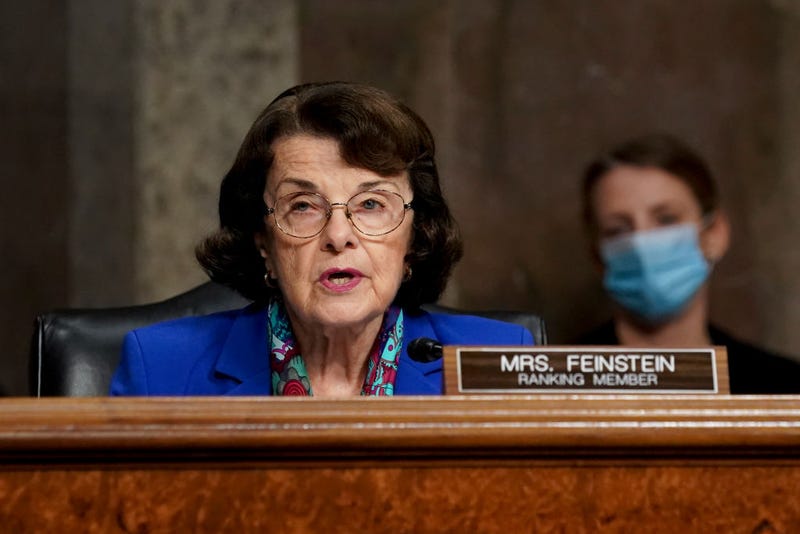
California Senator Dianne Feinstein introduced new legislation on Wednesday that would require all passengers on domestic airline flights to either be fully vaccinated, have recently tested negative for COVID-19 or have fully recovered from COVID-19.
"We know that air travel during the 2020 holiday season contributed to last winter’s devastating COVID-19 surge. We simply cannot allow that to happen again," Feinstein said in a release Wednesday morning.

The U.S. Air Travel Public Safety Act requires the development of national COVID-19 vaccination standards and procedures for domestic air travel in order to prevent future outbreaks of the disease.
The Secretary of Health and Human Services will need to work with the Federal Aviation Administration to develop these standards.
The bill would also require the CDC’s Advisory Committee on Immunization Practices to make recommendations for COVID-19 vaccine use in health care settings and among health care personnel in other settings.
The CDC already requires that those flying to the United States from a foreign country to provide proof of a negative COVID-19 test or documentation of recovery from COVID-19. The Biden administration announced last week that they’re working on strengthening these requirements.
"It only makes sense that we also ensure the millions of airline passengers that crisscross our country aren’t contributing to further transmission, especially as young children remain ineligible to be vaccinated," said Feinstein.

